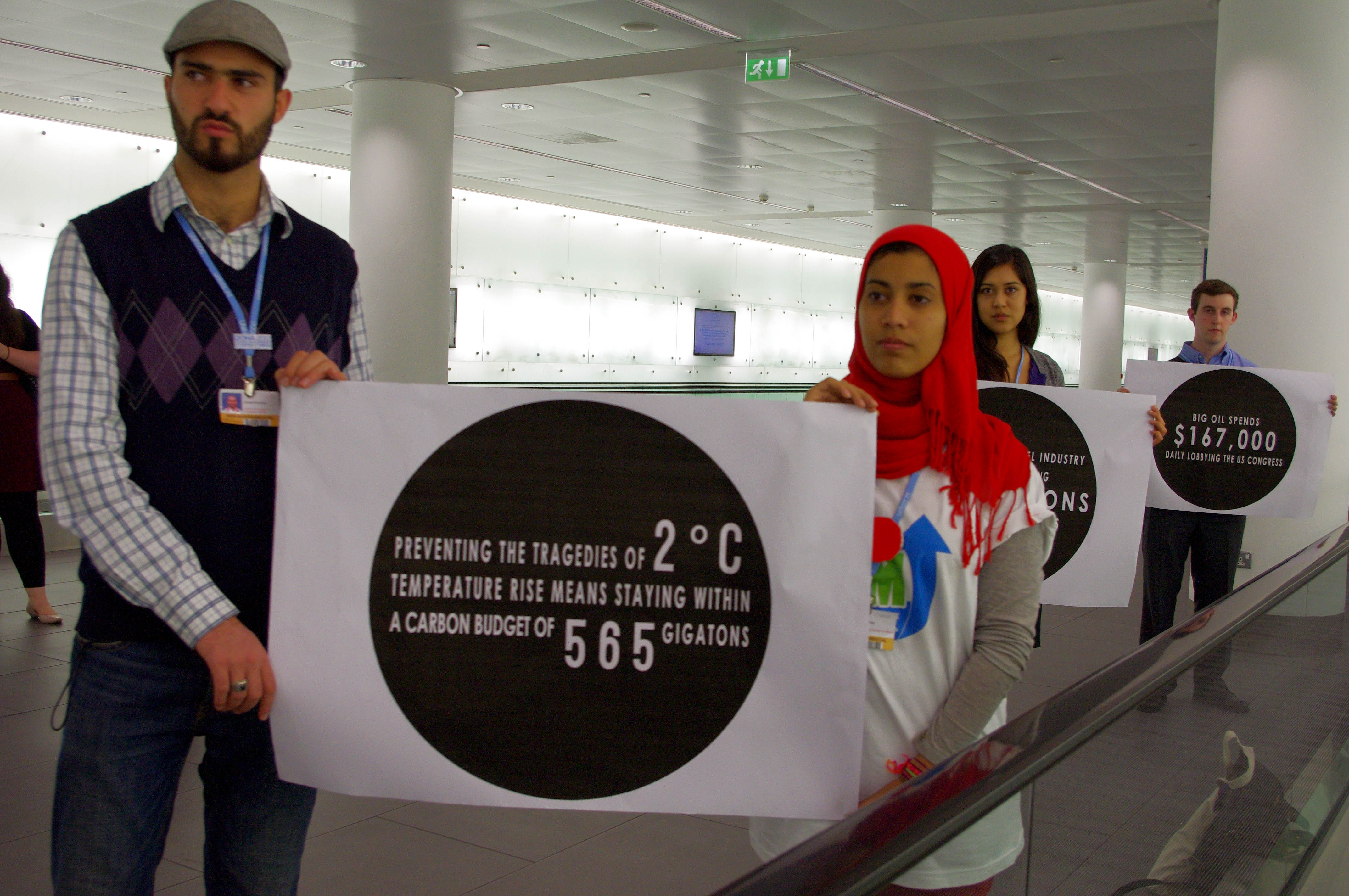Fossil fuels companies are influencing the outcome of the UN climate negotiations say youth
Dec 3, 2012
Fossil fuels companies are influencing the outcome of the UN climate negotiations say youth

DOHA, QATAR - The Canadian Youth Delegation to the UN climate negotiations released a report today that holds the tar sands responsible for Canada’s obstructing role at the negotiations. The report, entitled, Commitment Issues: Tar sands extraction invalidates Canada’s obligations to the UNFCCC and undermines global climate change negotiations, presents facts and figures on Canada’s role in these negotiations and the tar sands’ influence on its political decisions.
“This report details Canada’s inaction in dealing with its international commitments and the role of the tar sands in ensuring this failure,” said Alana Westwood, from the Canadian Youth Delegation. “[It] clearly describes how Canada’s domestic policies violate its pre-existing commitments to the UNFCCC, under the Copenhagen accord as well as cancun.”
As a signatory to the Kyoto Protocol, the Copenhagen and the Cancun accords, Canada has committed to work with the international community to cap the greenhouse emissions by 2015 in order to limit the global average temperature increase to two degrees Celsius. It has been commonly agreed that two degrees is the limit to avoid dangerous climate change that is also politically feasible.
However, the report provides a detailed mathematical account, supported by research from Canadian and international organizations, of how Canada’s tar sands expansion is set to increase emissions beyond 2015.
“Tar sands production is already nearly twice the acceptable limit required to stay under [the two degrees threshold] and approved and proposed developments will bring the production to three times above that limit,” added Westwood. “The tar sands will not only single handedly push the world beyond two degrees but also set a dangerous precedent by modelling extreme extraction of dirty fuel.”
Based on the facts presented in this reports, youth from across the world held a silent action this morning, in the Qatar National Convention Centre where the negotiations are held, to represent the influence the fossil fuel industry has on the outcome of these negotiations.
“Fossil fuel companies have been shockingly successful at buying our democracies and selling out my generation and those who will come after me. They spend hundreds of thousands of dollars every day on lobbying,” said Neelam Khare, a Canadian youth delegate.
Canada is ranked 58 only higher than Kazakhstan, Iran and Saudi Arabia in a report on climate performance index.
The Climate Change Performance Index ranks Canada in 58th place out of 61 based on an assessment of its government’s climate policies and performances in the last year. Produced by German Watch and Climate Action Network Europe, the report reviews the 58 countries that are collectively responsible for 90% of greenhouse gas emissions.
“This is a clear indication unfortunately of the stark reality of climate action in Canada right now,’ said Hannah McKinnon, the Campaigns Director for Climate Action Network Canada. “Reckless tar sands expansion … has cost us a serious lack of credibility within this [UNFCCC] process. Countries without a domestic plan to meet their climate goals really don’t have a legitimate voice here telling other countries to act.”
The report assessed the following five areas: emissions levels, renewable energy, climate policy, efficiency and development of emissions. Canada ranks the bottom very poor on the first three indicators, and poor and good and the last two respectively.
The report concludes that no industrialized nation is doing enough to address the urgency of climate change and to limit the average temperature increase to two degrees, hence the 1st, 2nd and 3rd place remained empty.
As the second week of negotiations is starting, ministers are arriving to Doha to discuss the more pressing issue in the hopes of reaching a post-Kyoto commitment.
Crystel Hajjar is reporting for the Media Co-op from the COP18 conference in Qatar. Click here to read more articles from the series, and stay tuned for more news from Doha.

